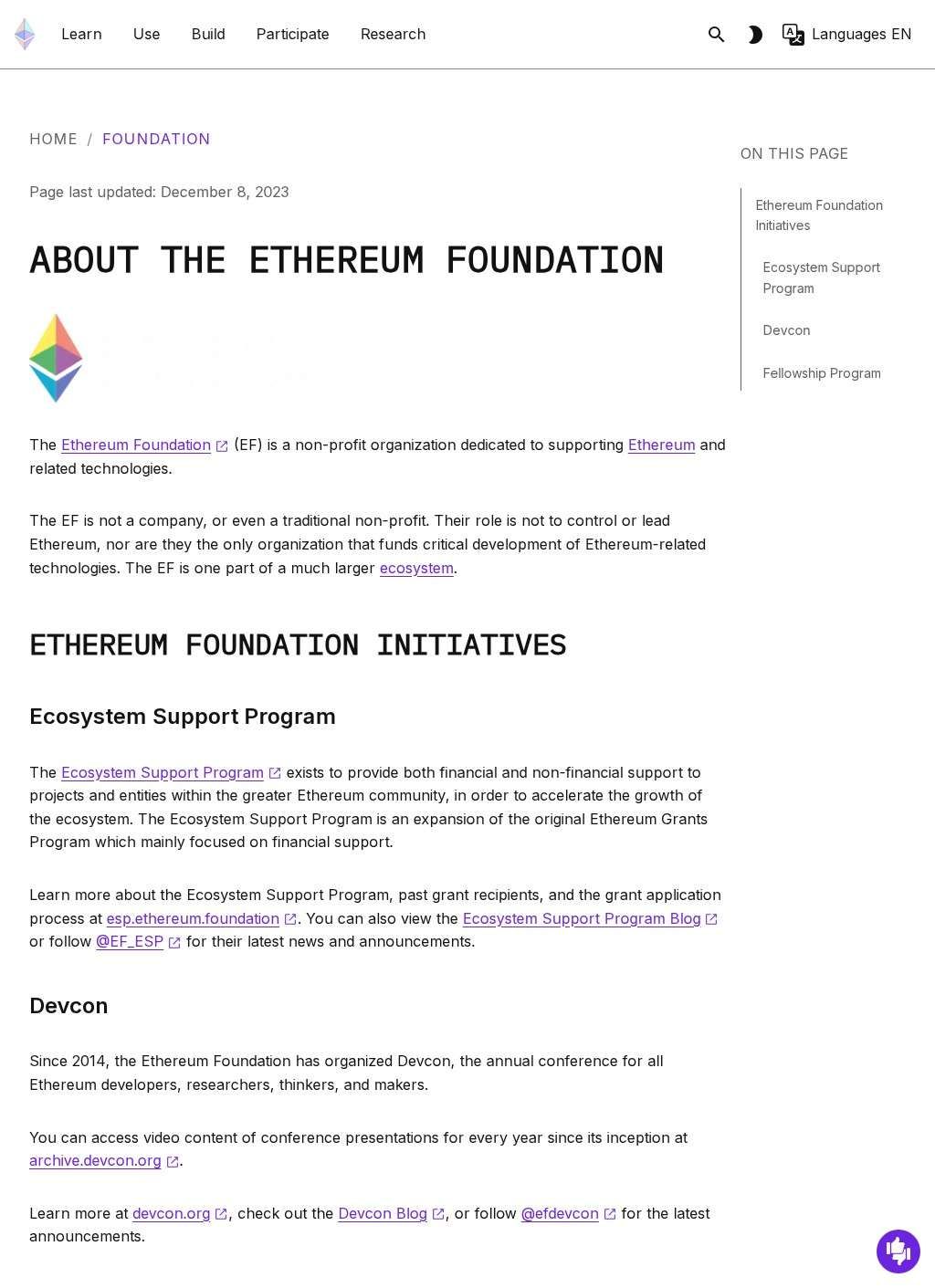The Ethereum Foundation emerges as a cornerstone institution in the cryptocurrency infrastructure landscape, stewarding the development of the world's leading programmable blockchain platform. Established in 2014 as a Swiss non-profit, this organization has evolved far beyond its initial mandate of launching Ethereum. Today, it serves as a neutral coordinating body that funds critical research, maintains core infrastructure, and nurtures an ecosystem supporting thousands of decentralized applications. Unlike traditional corporate structures, the Foundation operates with a philosophy of progressive decentralization, empowering the community while ensuring Ethereum's core values remain intact.
At the heart of Ethereum's infrastructure lies a revolutionary concept - the ability to execute smart contracts on a global, decentralized computer. The Ethereum Foundation plays a crucial role in maintaining and advancing this infrastructure, though it deliberately avoids controlling or leading the network. Instead, the organization focuses on identifying gaps in the ecosystem and providing targeted support where it's most needed. This approach has enabled Ethereum to grow from an ambitious whitepaper into infrastructure processing trillions of dollars in value annually.
The Foundation's Ecosystem Support Program (ESP) represents one of its most impactful initiatives, distributing millions in grants to projects strengthening Ethereum's technical foundations. Rather than funding consumer applications, ESP focuses on developer tools, protocol improvements, research initiatives, and public goods that benefit the entire ecosystem. Grant recipients range from individual researchers exploring novel cryptographic techniques to teams building essential infrastructure like client software. This strategic funding approach ensures resources flow to projects that multiply value across the ecosystem rather than capturing it for private gain.
Research coordination stands as another critical function of the Ethereum Foundation. The organization brings together leading cryptographers, computer scientists, and economists to tackle fundamental challenges in blockchain technology. Research areas span from improving scalability through layer-2 solutions to developing zero-knowledge proof systems that enable private transactions. The Foundation facilitates collaboration between academic institutions and practical implementers, ensuring theoretical advances translate into real-world improvements. This research directly feeds into Ethereum's ambitious roadmap for becoming a fully scalable, secure, and decentralized world computer.
Client diversity represents a unique infrastructure priority for the Ethereum Foundation. Unlike many blockchain projects dominated by a single implementation, Ethereum actively promotes multiple independent client software projects. The Foundation funds development teams creating different versions of Ethereum node software, each with its own codebase and design philosophy. This diversity strengthens the network's resilience - bugs or attacks affecting one client won't bring down the entire network. The Foundation's commitment to client diversity exemplifies its approach to decentralization at every level.
The Foundation's role in coordinating protocol upgrades demonstrates delicate balance between leadership and decentralization. When Ethereum needs major updates like the transition from proof-of-work to proof-of-stake, the Foundation helps coordinate without dictating. It provides neutral ground for developers, researchers, and community members to discuss proposals. The organization funds implementation work and testing infrastructure but ensures decisions emerge from community consensus rather than top-down mandates. This facilitation role proved crucial during "The Merge," Ethereum's historic transition to proof-of-stake that reduced energy consumption by 99.95%.
Educational initiatives from the Ethereum Foundation help onboard the next generation of blockchain developers and users. The ethereum.org website serves as a comprehensive knowledge hub, offering resources in dozens of languages. The Foundation supports curriculum development at universities, funds educational content creators, and organizes workshops for developers learning to build on Ethereum. By lowering barriers to entry, these educational efforts ensure Ethereum's infrastructure can be understood and utilized by people worldwide, regardless of their technical background or geographic location.
Devcon, the Ethereum Foundation's flagship conference, brings together the global community annually to share knowledge and coordinate development efforts. Unlike typical tech conferences focused on marketing, Devcon emphasizes technical content, research presentations, and collaborative problem-solving. The event serves as a crucial synchronization point for the decentralized ecosystem, allowing face-to-face coordination that complements year-round online collaboration. The Foundation ensures Devcon remains accessible through scholarships and by rotating locations globally.
The Foundation's Fellowship Program addresses diversity and inclusion within the Ethereum ecosystem. Recognizing that breakthrough innovations often come from unexpected places, the program identifies and supports talented individuals from underrepresented backgrounds. Fellows receive mentorship, funding, and connections to help them contribute to Ethereum's development. This initiative helps ensure that the infrastructure serving as the foundation for Web3 reflects diverse perspectives and serves global needs rather than a narrow set of interests.
Financial stewardship represents a critical yet often overlooked aspect of the Foundation's infrastructure role. Managing a treasury of ETH tokens worth billions requires careful balance between supporting current needs and ensuring long-term sustainability. The Foundation publishes regular transparency reports detailing its holdings and spending. This openness builds trust while demonstrating responsible management of resources intended to support Ethereum's development for decades to come.
The Foundation actively develops public goods infrastructure that benefits the entire cryptocurrency ecosystem. Projects like formal verification tools help ensure smart contract security. Research into scaling solutions provides blueprints that other blockchains can adapt. Open-source libraries and development frameworks lower barriers for all blockchain developers. By focusing on foundational infrastructure rather than competitive advantages, the Foundation strengthens the entire Web3 ecosystem.
Looking toward the future, the Ethereum Foundation continues evolving its role as Ethereum matures. The organization practices "purposeful subtraction," gradually reducing its involvement in areas where the community can self-organize. This philosophy ensures Ethereum can thrive independently while the Foundation focuses on challenges requiring neutral coordination. Plans include further decentralizing governance, supporting emerging use cases like decentralized social networks, and ensuring Ethereum's infrastructure can serve billions of users. Through its unique approach to supporting without controlling, the Ethereum Foundation has created a model for how non-profit organizations can nurture transformative technology while preserving its decentralized nature.
